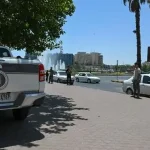ISLAMABAD: The government has decided against forming judicial commissions for the violent protests on May 9 and November 26 after negotiations with the PTI reached a standstill. Instead, the administration has suggested other possibilities, such as forming a parliamentary committee to look into the events.
A source with knowledge of the development told Dawn that the government had consulted legal experts and senior lawyers, who advised that judicial commissions could not be formed for cases that had already been decided or were being tried in courts, even though the government’s negotiation team did not submit its responses to National Assembly Speaker Sardar Ayaz Sadiq, who leads the dialogue committee.
Even before the fourth session of negotiations, which was set for January 28, PTI had already boycotted the well reported negotiating process, anticipating the government’s stance that creating judicial commissions was not practical.
PTI’s attendance at the fourth conference was contingent upon the establishment of judicial commissions to look into the incidents that occurred on May 9, 2023, and November 26, 2024. The government, however, agreed to wait for the opposition party’s “return” before disbanding the discussion group until January 31.
When contacted, the government’s negotiation team spokeswoman, Senator Irfan Siddiqui, stated that the government’s response would not be made public and that it was the result of extensive planning and diligence.
“In reality, the PTI has 15 demands because both the judicial commissions and the release of PTI prisoners have seven or eight more demands in their terms of reference (ToRs),” he continued.
Mr. Siddiqui responded that other possibilities, such as the creation of a parliamentary committee to look into the May 9 and November 26 protests, had been suggested when asked if the administration had opted against creating judicial commissions.
“We hoped that our responses would cover nearly all of PTI’s demands, but regrettably, the opposition party ended the dialogue process,” he continued.
Despite PTI’s calls for civil disobedience and angry tweets that included personal assaults on the prime minister and attacks on the armed services, Mr. Siddiqui stated that the administration “took this process forward with a lot of patience.”
“We accepted that,” he stated, adding that PTI now had the responsibility of approaching the speaker to resume the procedure.
“It is because of the government that the dialogue wrapped up,” said PTI interim chairman Barrister Gohar, who also attributed the negotiations’ failure to the government.
Shibli Faraz, another PTI politician, claimed that if the government had established judicial panels, the truth might have come to light. He asserted that “the government could not continue for even a day after the judicial commission exposed the facts.”








